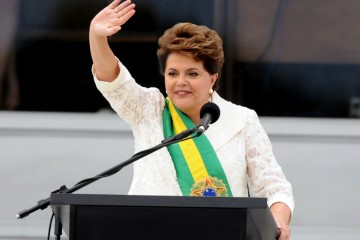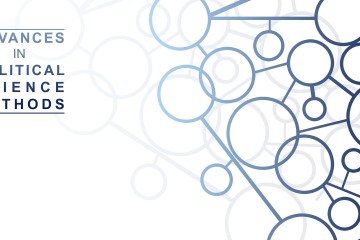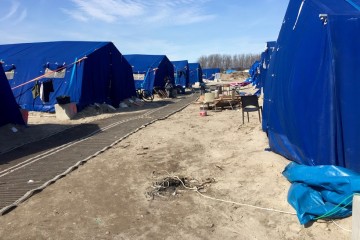
Impeaching Brazil’s president: A tragedy foretold
The historical defeat of Dilma Rousseff on 17 April, when more than two-thirds of Brazil’s lower House of Congress voted to oust the country’s first female president, is not the end of the debate about whether she committed a crime that would constitutionally justify her impeachment. The opposition claims that the president, elected with more than fifty-four million votes, used accounting tricks to artificially lower the government’s budget deficit. Her supporters argue that other Brazilian presidents have used the same strategy before. The final word on the impeachment motion will be given shortly by the Senate, but at the end of the day, many Brazilians are still not convinced that Ms Rousseff’s impeachment is based on solid constitutional grounds. Did …

What Big Data can teach political scientists
Big Data is now a buzzword in the political science field. Some might call this hype. Others see unlocking the power of “Big Data” as the most significant transformation in research this century. In the world of research, Big Data seems to be living up to its promise. And the results include a wave of new and inspiring projects. What is Big Data? Big data is not simply research that uses a large set of observations. It might be thought of as re-imagining large-n inquiries, dealing with hundreds of thousands, and, in some cases, even millions of observations. Big Data means giant N. But it is more than a question of quantity. In their well-known Ted Talk, Erez Lieberman …

To be alive is to have hope
I traveled to the Calais migrant and refugee camp from March 14 to 16, together with a humanitarian student group from Brasenose College that collected donations and supplies to aid local NGOs with clothing and basic medical supplies. This article is based on my impressions of the camp and interviews with the migrants, refugees and NGO workers.

Democracy matters, but how?
In an unheralded committee room at the House of Lords on Wednesday a group of politicians from across the political spectrum came together with the participants and organisers of two recent pilot Citizens’ Assemblies on constitutional reform. It was heartening to hear the genuine appetite for new approaches to involving members of the public in politics. Politicians from the Conservatives, Greens, Labour, Liberal Democrats, Plaid Cymru, SNP and UKIP all sang the praises of the Citizens’ Assemblies and called for more public participation in politics. Nevertheless, belying this consensus was a little less agreement than apparent at first sight. The two citizens’ assemblies – Assembly North in Sheffield and Assembly South in Southampton – provided a chance for a small …

Brazil’s delicate foundations are falling apart like a house of cards
A cornered government, a legislative short of legitimacy, a contaminated judiciary and polarised protesters put Brazilian institutional balance to the test. Immoral deals, Machiavellian manoeuvres and outright dishonesty. No wonder comparisons between Brazilian politics and the American TV show House of Cards are tempting and widespread. Even Netflix made the connection to promote the release of its fourth series in Brazil. This clever marketing initiative prompted Maurício Santoro, a political scientist, to joke on Twitter that “Netflix is the only institution enjoying the trust and esteem of Brazilians these days.” But Brazil’s plight is not fiction, and the quip accompanies a concerning realisation. For some time, even in the face of turmoil and economic meltdown, it was possible to believe …

International organisations on the loose? Sovereignty and international military operations
Dr Hylke Dijkstra has recently published a new book entitled International Organizations and Military Affairs (Routledge, 2016). This book represents the first comparative study of the politics behind the scenes at the United Nations, NATO and the European Union concerning the use of military force. It is also the result of a research project carried out at the DPIR in Oxford. DPhil candidate Dana Landau interviews him on the most pertinent questions that arise from his work.

Have the mass media fuelled Brazil’s turmoil?
As any country with a minimally functioning democracy, Brazil has an ambivalent relationship with its mass media. And as in all countries with a minimally functioning market economy, Brazilian mass media have been disrupted by personalised digital platforms. Understanding To two elements, and how they became entangled, is essential if we are to grasp the role of the media in the social turmoil that has engulfed Brazil in the past year or so.
But in spite of their deep flaws, newspapers and broadcasters cannot be blamed for the toxic political environment that has taken over the country.

What would Brexit mean for public health?
The British political ship is set to weather another storm. On 20th February, the Prime Minister, David Cameron, announced the start of the race towards the June 23rd referendum on the United Kingdom’s (UK’s) membership of the European Union (EU). This hews consistently with Cameron’s political manifesto presented last election: that the Conservative Party would seek to renegotiate Britain’s EU membership and hold a referendum by the end of 2017. Many of the current debates have been confined largely to freedom of movement, a core principle of the EU that perpetuates inward migration. The tensions are also constructed around three fundamental freedoms: free movement of goods, capital and services. What remains scarce, however, is dialogue tackling issues that will clearly …









